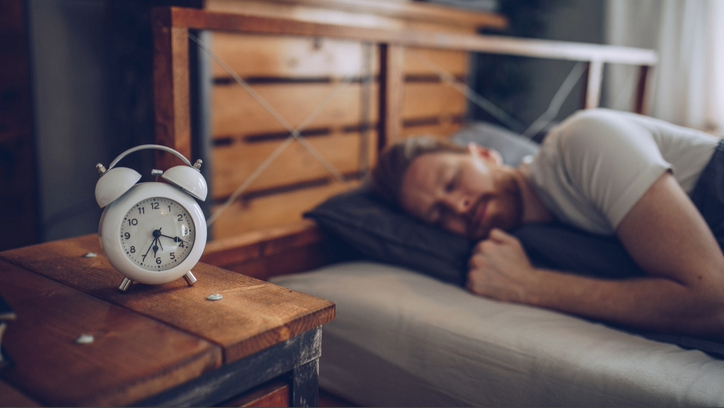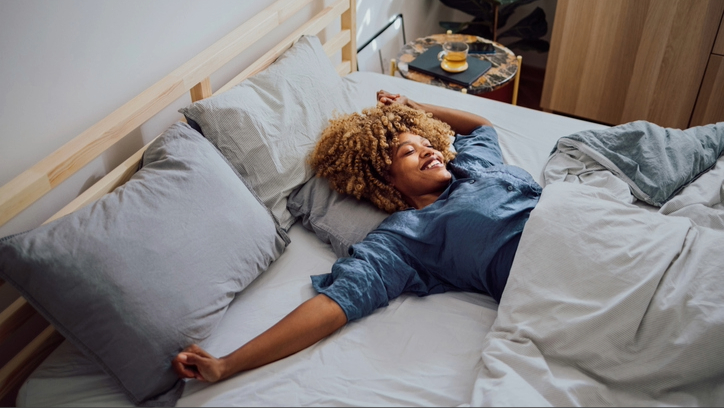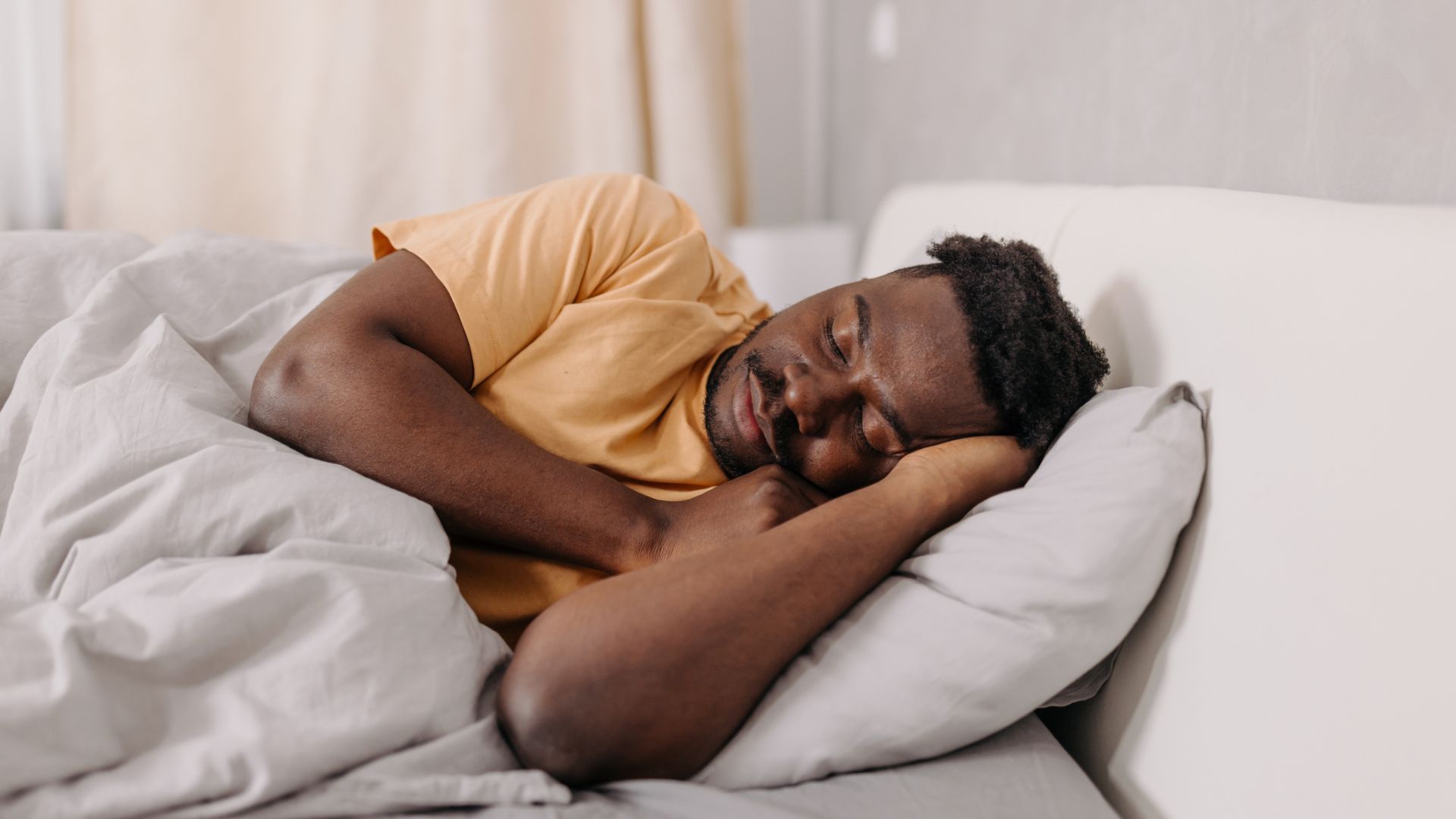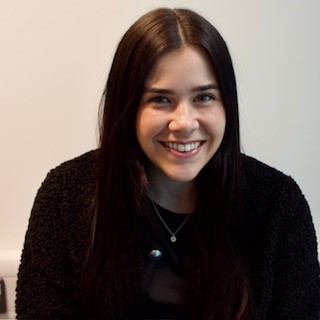Biohacker reveals the sleep schedule you need to 'live healthier, get leaner and feel younger'
Plus, Dave Asprey's nighttime routine for getting quality sleep every night

A biohacker has shaved 30 years off his biological sleep age by sticking to a strict nighttime routine of getting 6.5 hours of quality sleep a night. Which, according to studies, is the amount of sleep that's linked to living the longest.
Dave Asprey is a technology entrepreneur who spent two decades and over $2 million optimizing his biology and sleep. He has worked with fellow biohacker Bryan Johnson on the newly-released Netflix documentary Don't Die: The Man Who Wants to Live Forever. Recently, he has perfected his sleep schedule and has seen huge benefits in his wellebing.
From sleepmaxxing to 'locking in' to the winter arc, it's becoming trendy to prioritize wellness routines and habits that improve our health and promise to prolong our lifespan. Asprey is a familiar face in this area of the internet. Here he shares how, at 51 years old, he gets the sleep quality of a 20-year-old (bearing in mind sleep quality tends to decrease with age.)
Sleeping six and a half hours a night
For most of his life, Asprey slept for about four hours a night, devoting the rest of his time to family life and building a company alongside working full time. Eventually he felt burnt out and resolved to hack his sleep for better health and a prolonged life span.
Now he sleeps an average of 6.5 hours a night and follows a strict routine to help him get the best quality sleep in that time, and he's reaping the benefits. Asprey tells Mind Body Green: "I became leaner, healthier, and younger on 6.5 hours of sleep per night."
Prioritising rest is now a mainstay in Asprey's quest for ultimate health and longevity. He says: "I have a goal of living to at least 180, so sleep is non-negotiable now." Science agrees that this sleep duration can do wonders for your overall health and biological age:
- Research shows 6.5 hours is a safe amount of sleep
- Study found no benefit to sleeping longer than 6-7 hours
- Study participants who slept 8 or more hours, or less than 4, had a higher death rate
A six-year study by researchers at the University of California at San Diego School of Medicine and the American Cancer Society involving more than one million participants between the ages of 30 and 102 years found that people who slept for six or seven hours a night had a lower death rate than those who regularly slept less than four hours, or indeed, more than eight hours. Hence, six to seven hours of sleep per night is taken to be the sweet spot for those who want to live the longest.
Get instant access to breaking news, the hottest reviews, great deals and helpful tips.

Biohacker reveals his exact wake-up and nighttime routine
- 6am wake up
- Hydrate and light exposure
- 5pm meal cut off
- 9pm shut off electronic devices as bedtime routine begins
Asprey wakes up at 6am using a SleepSpace alarm to gently rouse him from sleep without disturbing a crucial sleep cycle. From there, he says a short intention, drinks water with sea salt for electrolytes, takes a natural thyroid supplement and goes outside for 10 to 20 minutes sunlight exposure. Sometimes he'll add in a cold plunge or barefoot walk on grass.
Then it's coffee time for Asprey, followed by a shower, and on to the school run, all the while his phone is on airplane mode. Once the kids are dropped off and his morning health is taken care of, he turns on his phone and gets on with his day.
Focussed on human enhancement, biohacking for sleep involves adjusting various aspects of our lifestyle and environment to enhance sleep quality.
By the time 5pm hits, Asprey is eating a dinner consisting of grass-fed red meat, steamed veggies and a carbohydrate like white rice with a dose of grass-fed butter. He is conscious of eating relatively early in the evening, at least two or three hours before bedtime, to avoid upsetting his circadian rhythm and digestive system.
Once the sun has set, Asprey wears artificial light filtering glasses to prevent blue, violet, green and yellow light from sabotaging the production of the sleep hormone melatonin. He says these glasses allow him to "double" the amount of deep sleep he gets.
9pm is the time his bedtime routine begins. He starts by powering down electronic devices and taking a plethora of sleep supplements including Lion's mane, magnesium glycinate and GABA. Sometimes he'll also have a teaspoon of honey with MCT oil to ensure his brain gets enough glucose for cleansing and regeneration throughout the night.

Next he gratitude journals before closing his blackout curtains and kits himself out with a custom bite guard and mouth tape to prevent teeth grinding and promote nasal breathing through the night.
By 10pm, it is time for him to hop into bed (he has an organic mattress, of course) and turn on his bedroom cooling system to ensure he sleeps in an ideal thermal environment. Ten minutes later, Asprey is catching restorative ZZZs "ready for another day of kicking ass," he says.
How to hack your own sleep
Practising good sleep hygiene is key to getting quality sleep. This involves creating healthy sleep patterns, such as going to bed and waking up at the same time every day, and practising positive habits, like following a calming nighttime routine, that will help you fall asleep faster and stay asleep throughout the night.
Creating a bedroom environment that is conducive to sleep is also essential. You want to make your bedroom a relaxing sanctuary where you can switch off and let your mind and body rest.
How much sleep do you need?
The amount of sleep you need depends on your age, health and lifestyle. But the NHS and CDC generally recommend healthy adults get between seven and nine hours of sleep per night. Hence, eight hours has long been taken as the optimal sleep duration.
However, some studies, like the one from the University of California, suggest between six and seven hours is ample. Leader of the study Dr Daniel Kripke, a professor of psychiatry at the university who specialises in sleep research, says: "Individuals who now average 6.5 hours of sleep a night can be reassured that this is a safe amount of sleep. From a health standpoint, there is no reason to sleep longer."
Follow the table below to determine how much sleep you and your children need based on age:
AGE | HOURS OF SLEEP PER NIGHT | Row 0 - Cell 2 |
4 to 12 months | 12 to 16 hours | Row 1 - Cell 2 |
1 to 2 years | 11 to 14 hours | Row 2 - Cell 2 |
3 to 5 years | 10 to 12 hours | Row 3 - Cell 2 |
6 to 12 years | 9 to 12 hours | Row 4 - Cell 2 |
13 to 18 years | 8 to 10 hours | Row 5 - Cell 2 |
18 to 60 years | 7 to 9 hours | Row 6 - Cell 2 |
over 60 years | 7 to 8 hours | Row 7 - Cell 2 |

Why your bedroom is the biggest hack for your sleep
A bedroom that is conducive to sleep is essential to getting quality rest. To achieve this you should be sleeping on the best mattress and best pillow for your sleep style and body type, sleeping at an optimal temperature (between 60-68°F) and blocking out noise and light pollution. By following these tips, your sleep space will be calm and distraction-free, allowing your nervous system to let go of any tension built up through the day so you can drift off peacefully.

Eve is a sleep tech product tester and writer at Tom's Guide, covering everything from smart beds and sleep trackers, to sleep earbuds and sunrise alarm clocks. Eve is a PPA-accredited journalist with an MA in Magazine Journalism, and has four years’ experience writing features and news. In her role as Sleep Tech Product Tester and Writer for Tom's Guide, Eve is constantly trying out and reviewing the latest sleep products from brands such as Apple, Garmin, Whoop, Hatch, Sleep Number, Eight Sleep, and Oura. A fitness enthusiast who completed the London Marathon earlier this year, Eve loves exploring the relationship between good sleep, overall health, and physical performance, and how great sleep tech can make that relationship even better.
 Club Benefits
Club Benefits





